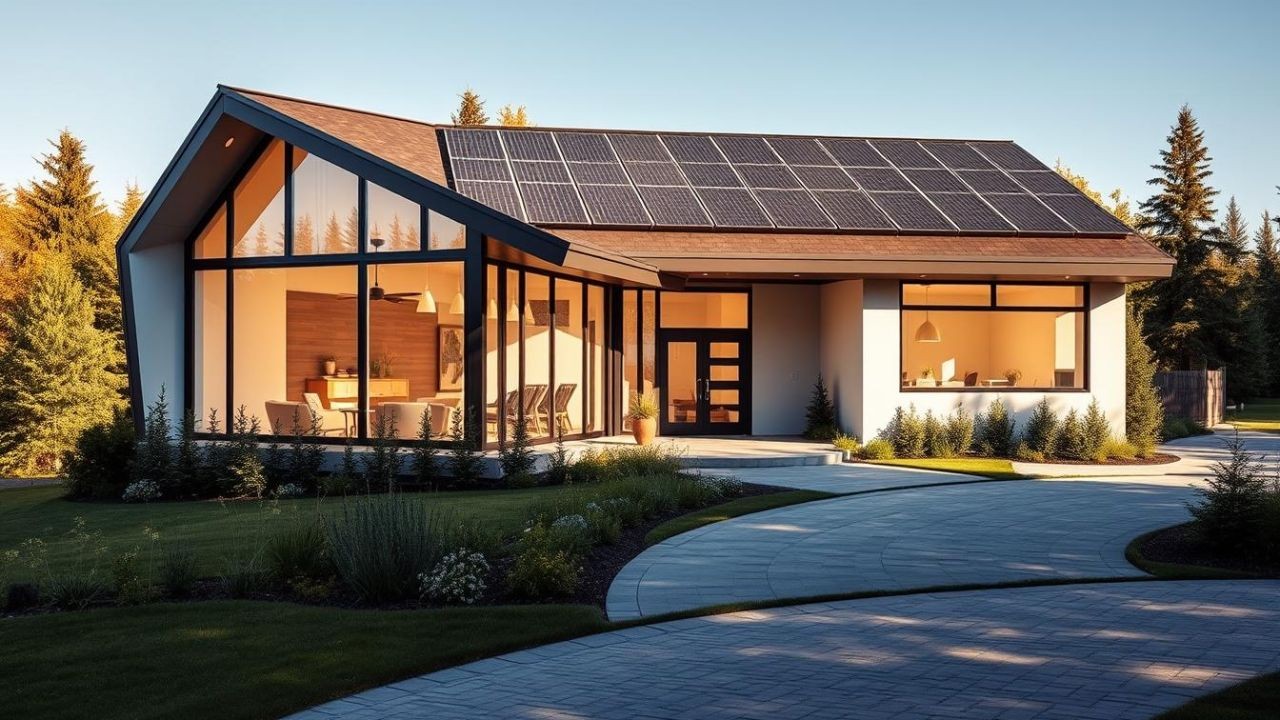New Zealand, renowned for its breathtaking landscapes and pristine natural beauty, is taking bold steps in environmental protection, leveraging its intrinsic love for nature to spearhead pioneering efforts. As global awareness of environmental challenges grows, New Zealand's commitment to sustainability and ecological preservation offers valuable insights for property development specialists. This article explores how New Zealand's environmental ethos influences its policies and industries, setting the stage for future trends and debunking common misconceptions about environmental protection.
Future Forecast & Trends
The Green Economy Revolution
New Zealand is at the forefront of the green economy revolution, integrating eco-friendly practices across various sectors. According to the Ministry of Business, Innovation, and Employment (MBIE), the country's renewable energy sector has seen a 30% growth in the last five years, with over 80% of electricity generated from renewable sources. This trend is expected to continue, driven by government incentives and a shift in consumer preferences towards sustainability.
Urban Planning and Eco-Friendly Developments
Urban planning in New Zealand is increasingly prioritizing green spaces and sustainable architecture. Cities like Wellington and Christchurch are adopting green building certifications such as Homestar, which assess environmental performance and encourage sustainable construction. This shift not only reduces the carbon footprint but also enhances the liveability of urban areas.
Policy Innovations Driving Change
New Zealand's government is committed to environmental protection through innovative policies. The Zero Carbon Bill, enacted in 2019, aims to make the country carbon-neutral by 2050. This legislation incentivizes businesses to adopt low-emission technologies, paving the way for sustainable industrial practices that align with global climate goals.
Real-World Case Studies
Case Study: Meridian Energy – Leading the Renewable Charge
Problem: Meridian Energy, New Zealand's largest renewable electricity generator, faced the challenge of increasing demand while minimizing environmental impact.
Action: The company invested heavily in wind and hydroelectric projects, including the 222 MW wind farm at West Wind. This strategic focus on renewables allowed Meridian to supply clean energy without expanding its carbon footprint.
Result: Meridian now generates 100% of its electricity from renewable sources, contributing to New Zealand's goal of achieving carbon neutrality by 2050. Their efforts have set a benchmark for others in the industry, demonstrating the feasibility and profitability of green energy investments.
Takeaway: The success of Meridian Energy underscores the potential of renewable energy in driving economic and environmental progress. Property developers can learn from this by incorporating sustainable practices in construction and energy use.
Case Study: Wellington City Council – Eco-Friendly Urban Transformation
Problem: Wellington faced increasing urban density and environmental degradation, necessitating a sustainable development strategy.
Action: The city council introduced the "Our City Tomorrow" initiative, focusing on green transportation, energy-efficient buildings, and expanded public green spaces.
Result: Wellington saw a 20% reduction in carbon emissions over five years, improved public health outcomes, and increased community engagement in sustainability initiatives.
Takeaway: Urban planners can draw inspiration from Wellington's approach to creating resilient, sustainable cities that balance development with environmental stewardship.
Myth vs. Reality
Myth: Sustainability Compromises Profitability
Reality: Contrary to the belief that sustainable practices are costly, research from Stats NZ shows that businesses implementing green strategies report a 15% increase in profitability due to enhanced operational efficiency and consumer loyalty.
Myth: Environmental Regulations Stifle Innovation
Reality: Environmental regulations in New Zealand have spurred innovation, with companies adopting cleaner technologies and creating new markets. A study by the University of Auckland found that firms investing in green R&D experienced a 20% higher growth rate compared to their peers.
Myth: Eco-Friendly Developments Are a Passing Trend
Reality: The demand for eco-friendly developments is not waning; it's accelerating. According to a report by the Reserve Bank of New Zealand, consumer demand for sustainable housing options has grown by 25% annually, indicating a long-term shift in market dynamics.
Biggest Mistakes to Avoid
- Overlooking Regulatory Compliance: Failing to adhere to environmental regulations can lead to hefty fines and reputational damage. Developers should stay informed about the Resource Management Act and its implications.
- Neglecting Community Engagement: Successful projects often involve community input. Ignoring this can result in opposition and delays. Engage with local stakeholders early to align project goals with community needs.
- Underestimating Long-Term Costs: Initial savings from non-sustainable materials can lead to higher maintenance costs. Investing in quality, sustainable materials ensures longevity and cost savings over time.
Contrasting Viewpoints
The Debate: Economic Growth vs. Environmental Protection
Advocate View: Proponents argue that economic growth and environmental protection can coexist. Investments in green technologies create jobs and stimulate economic activity. A 2024 report by Deloitte found that the green economy could add $8 billion to New Zealand's GDP by 2030.
Critic View: Critics caution that stringent environmental policies may hinder industrial growth and competitiveness. They argue that balancing economic and environmental priorities requires careful management to avoid stifling innovation.
Middle Ground: A balanced approach that integrates sustainable practices with economic incentives can drive growth while preserving the environment. This involves innovative policy frameworks that reward green investments and penalize unsustainable practices.
Future of Environmental Protection in New Zealand
By 2030, New Zealand is expected to lead global environmental efforts, with advancements in renewable energy, sustainable urban planning, and conservation initiatives. The country's commitment to carbon neutrality and biodiversity preservation will position it as a hub for green innovation. As the world pivots towards sustainability, New Zealand's love for nature will continue to guide its environmental policies and industry practices, setting a benchmark for others to follow.
Final Takeaways & Call to Action
- New Zealand's environmental policies offer a model for sustainable development, balancing economic growth with ecological preservation.
- Property developers should integrate green building practices to meet growing consumer demand and regulatory requirements.
- Engage with local communities and stakeholders to ensure successful project outcomes and enhance public support.
Are you ready to embrace the future of sustainable development? Join the movement towards a greener New Zealand by integrating eco-friendly practices into your next project. Share your thoughts and experiences in the comments below!
People Also Ask
- How does New Zealand's love of nature impact its industries? New Zealand industries, particularly tourism and agriculture, benefit from sustainable practices, enhancing brand reputation and attracting eco-conscious consumers.
- What are the biggest misconceptions about environmental protection in New Zealand? A common myth is that sustainability reduces profitability. However, data shows businesses adopting green practices often see increased efficiency and customer loyalty.
- How can property developers contribute to environmental protection in New Zealand? Developers can adopt sustainable building certifications, use eco-friendly materials, and engage with communities to create environmentally responsible projects.
Related Search Queries
- New Zealand environmental policies 2025
- Sustainable urban planning in New Zealand
- renewable energy growth in New Zealand
- Green building practices in New Zealand
- Environmental challenges in New Zealand
- Eco-friendly property development strategies
- New Zealand's carbon neutrality goals
- Impact of climate change on New Zealand's economy
- Community engagement in sustainable development
- Future of green technologies in New Zealand































